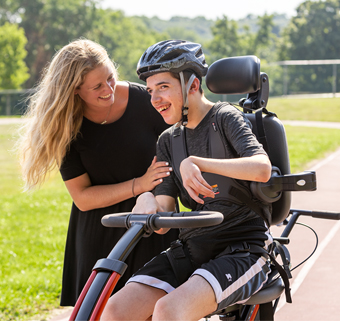
 Doctors of all stripes have known for years that their patients with neurodevelopmental disabilities (NDD) benefit from cycling; It almost goes without saying. However, health insurance coverage for adaptive bicycles has been sparse at best and this must change.
Doctors of all stripes have known for years that their patients with neurodevelopmental disabilities (NDD) benefit from cycling; It almost goes without saying. However, health insurance coverage for adaptive bicycles has been sparse at best and this must change.
Thanks to the work of Mary Gannotti, professor of physical therapy at the University of Hartford, and her team of four academic colleagues, a recently published policy report sheds light on the clear physical and psychosocial benefits of cycling equipment for the NDD population. Build a strong case, based on existing and compelling research showing that adaptive bicycles should be recognized as durable medical equipment and are, in fact, medically necessary for people with NDD.
Generally speaking, payers have not yet recognized the immediate and lifelong health improvements (with corresponding reductions in health costs) that result directly from access to daily adaptive cycling.
The report effectively dismantles this policy failure and provides regulatory and legislative pathways for change.
He also explains that the promotion is not just for the obvious health benefits that adaptive cycling confers; It is also an ethical imperative. Our restrictive definition of durable medical equipment effectively denies cycling access to the NDD community. As a result, we expose this population to a number of comorbidities. If this is going to change – and it must – then this policy report can become an essential tool to effect that change.







